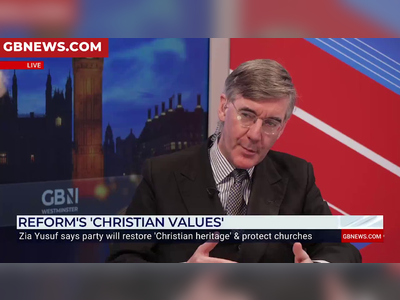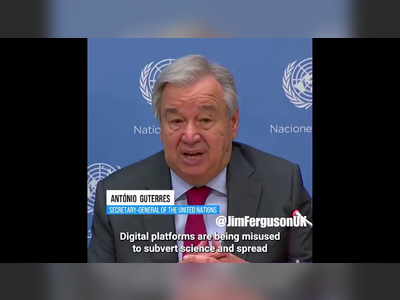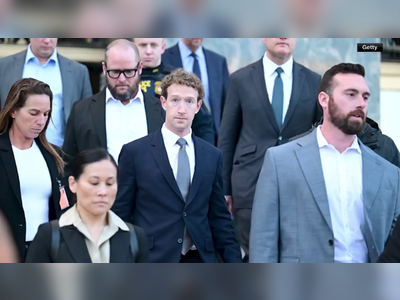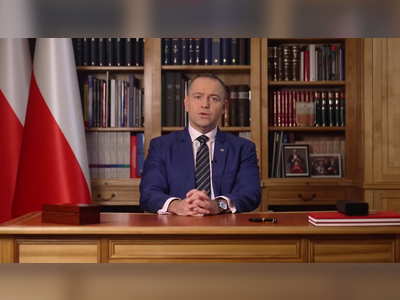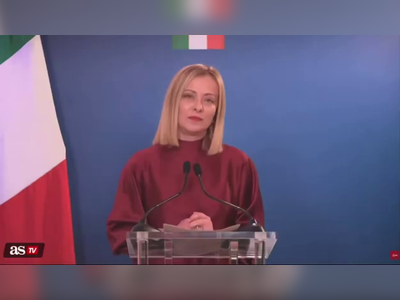Dutch Healthcare Negotiations Collapse Amidst Sudden Budget Cuts
Key health organizations withdraw from talks, citing untenable €315 million reductions that jeopardize critical staffing efforts.
In a dramatic turn of events, key players in the Dutch healthcare sector have withdrawn from negotiations over a comprehensive healthcare agreement that was intended to chart the country's health policy course until 2028.
This collective exit follows the government's unexpected decision to impose a €315 million budget cut on healthcare, which was ostensibly designed to limit concurrently announced reductions in education spending.
Tonight, the associations representing academic hospitals, independent clinics, and medical specialists announced their withdrawal.
Later, the nurses' professional association added its voice to the chorus of dissent.
The healthcare sector's unified stance highlights profound dissatisfaction with the government's fiscal decisions, particularly as hospitals already grappling with staff shortages now face a further €165 million reduction in funds earmarked for training nurses and specialist practitioners.
Earlier today, the Dutch Association of Hospitals had already signaled its intent to exit the negotiations, with its chairman, Ad Melkert, articulating that the additional budget cuts are a bridge too far.
'Healthcare is confronting immense challenges,' Melkert stated, 'with labor market shortages and rising demand for services.
The financial situation of the hospital sector is already precarious.'
This budgetary pivot was unforeseen, especially given the coalition government's pledge to prioritize equal access to healthcare and to alleviate labor shortages as part of the forthcoming health accord.
Such commitments had won widespread support across the healthcare landscape.
The funding initially promised for workforce development was seen as vital for making the sector more attractive to prospective employees, especially as nurses, under the new system, are expected to undertake more responsibilities that necessitate ongoing professional development.
'We must eliminate these cuts from consideration,' Melkert emphasized.
'It is crucial that we continue to invest in our workforce in the coming years, as they are the cornerstone of healthcare.
It’s a bitter pill that these invaluable employees are now bearing the brunt.'
As Health Minister Fleur Agema navigates the fallout from losing the backing of hospitals and doctors, achieving key policy goals, including the maintenance of smaller regional hospitals, has become more challenging.
Healthcare stakeholders have issued a letter to the Senate imploring a reconsideration of the measures, stressing that the 'practicality and desirability of these initiatives' have not been sufficiently evaluated.
They urge senators to delay their budget votes and engage in further dialogue with Minister Agema and Education Minister Eppo Bruins.
Several senators have already responded on platforms like LinkedIn, expressing reluctance to proceed to a vote on the budget without further scrutiny.
Roel van Gurp of the GroenLinks-PvdA alliance declared his intention to raise probing questions, underscoring that any vote will only occur after the new year.
Prior to these developments, municipalities had also exited the talks, frustrated by the government's redirection of funds promised under the previous Rutte IV cabinet to other projects.
This series of withdrawals points to a broader crisis in confidence in the government's ability to manage its financial commitments across sectors.
This collective exit follows the government's unexpected decision to impose a €315 million budget cut on healthcare, which was ostensibly designed to limit concurrently announced reductions in education spending.
Tonight, the associations representing academic hospitals, independent clinics, and medical specialists announced their withdrawal.
Later, the nurses' professional association added its voice to the chorus of dissent.
The healthcare sector's unified stance highlights profound dissatisfaction with the government's fiscal decisions, particularly as hospitals already grappling with staff shortages now face a further €165 million reduction in funds earmarked for training nurses and specialist practitioners.
Earlier today, the Dutch Association of Hospitals had already signaled its intent to exit the negotiations, with its chairman, Ad Melkert, articulating that the additional budget cuts are a bridge too far.
'Healthcare is confronting immense challenges,' Melkert stated, 'with labor market shortages and rising demand for services.
The financial situation of the hospital sector is already precarious.'
This budgetary pivot was unforeseen, especially given the coalition government's pledge to prioritize equal access to healthcare and to alleviate labor shortages as part of the forthcoming health accord.
Such commitments had won widespread support across the healthcare landscape.
The funding initially promised for workforce development was seen as vital for making the sector more attractive to prospective employees, especially as nurses, under the new system, are expected to undertake more responsibilities that necessitate ongoing professional development.
'We must eliminate these cuts from consideration,' Melkert emphasized.
'It is crucial that we continue to invest in our workforce in the coming years, as they are the cornerstone of healthcare.
It’s a bitter pill that these invaluable employees are now bearing the brunt.'
As Health Minister Fleur Agema navigates the fallout from losing the backing of hospitals and doctors, achieving key policy goals, including the maintenance of smaller regional hospitals, has become more challenging.
Healthcare stakeholders have issued a letter to the Senate imploring a reconsideration of the measures, stressing that the 'practicality and desirability of these initiatives' have not been sufficiently evaluated.
They urge senators to delay their budget votes and engage in further dialogue with Minister Agema and Education Minister Eppo Bruins.
Several senators have already responded on platforms like LinkedIn, expressing reluctance to proceed to a vote on the budget without further scrutiny.
Roel van Gurp of the GroenLinks-PvdA alliance declared his intention to raise probing questions, underscoring that any vote will only occur after the new year.
Prior to these developments, municipalities had also exited the talks, frustrated by the government's redirection of funds promised under the previous Rutte IV cabinet to other projects.
This series of withdrawals points to a broader crisis in confidence in the government's ability to manage its financial commitments across sectors.
